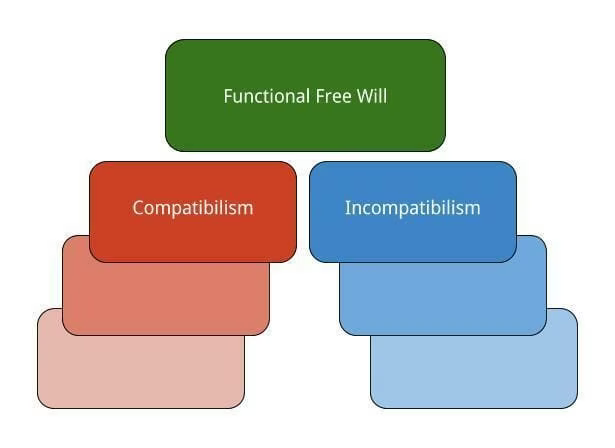Functional Free Will

The free will discussion needs a new term—one that serves as a unified theory between compatibilism and incompatibilism.
I propose Functional Free Will as the final destination for advanced compatibilists and incompatibilists. It represents the ultimate, shared plateau those from both camps who realize that 1) they agree on 99% of the points, and 2) that their respective belief structures are flawed in at least one major way.
Top-end compatibilism fails because it carries out the unclean task of justifying the magical and Libertarian view of free will possessed by billions. It takes the Libertarian view that most people have of their own free will, and legitimizes it through intellectual subtlety that is completely lost on the masses.
Top-end incompatibilism fails its adherents every day of their lives, starting the moment they wake. They reject all notion and possibility of free will, yet they judge how and whether to interact with people based on those peoples’ choices. They choose (ahem) to enter binding agreements (or not) with people, based on their judgement of character. In short, they go through life exactly as if they had the choices they so violently reject.
So, the problem with evolved compatibilism (where one rejects all forms of magical free will) is that it’s virtually indistinguishable from evolved incompatibilism. And the problem with evolved incompatibilism (where one embraces the practical choices one makes each day) is that it’s virtually indistinguishable from evolved compatibilism.
Hence, Functional Free Will.
There are corrosive issues with having a society that believes in Libertarian free will, which most people do. It powers the engines of hatred, first and foremost, and also justifies social and political systems that create extraordinary gaps in human happiness and suffering.
But there are equal (if not worse) flaws in any ideology that rejects all notions of moral responsibility. That is unless the conversation is regarding a fictional people living in a fictional world. In the real world, incompatibilists spend most of their day behaving exactly like Libertarians, and that should cause concern for anyone who values intellectual integrity.
The solution is a subtle but increasingly obvious one: we must behave according to a hybrid model that simultaneously holds two positions:
Reject the poisonous and false proposition of Libertarian freedom along with the belief in technical moral responsibility that emanates from it
Embrace the contradictory fact that we must as humans behave in our daily lives—and govern our society—largely as if this type of moral responsibility existed
This is Functional Free Will, and I believe that, like Camus’ Absurdism, both its value and flaw lies in its contradiction. We must never deny the truth, but we can (and should) find a way to live despite of it.
And just as with Absurdism, Functional Free Will is likely the best model we will be able to achieve for addressing the violent collision between unpleasant truth and human experience. There is tension there, but it’s an honest tension that must remain if we value intellectual integrity.
This can change if and when humans begin to interact with each other in a fundamentally different way, i.e. if we ever start treating each other as non-free configurations of the universe, thus bringing day-to-day behavior in line with reality.
I personally confess to not seeing that as an improvement, and I think most will share that sentiment.
So until that changes, I believe Functional Free Will will remain the optimal way to balance the tension between the world we actually live in vs. the one we experience.
And that’s why the model is so named: it’s not an accurate or correct model—it’s a functional one. And perhaps it’s the best we can hope for.
Notes
This essay has been a long time in the making, but the final clarity for it was provided by Sam Harris’ recent conversation with Daniel Dennett >.
Once this approach is accepted, it still leaves the hard work of determining how best to build a society given the tension between the truth and the practical. The good news there is that Libertarian and Consequentialist intuitions are mostly in sync. It’s where intuition and reality conflict in a way that causes harm that the challenges appear, e.g., managing the disparity in success between individuals and groups.
I have another post about the link to Absurdism, titled Camus’ Absurdism as the Solution to Free Will >.